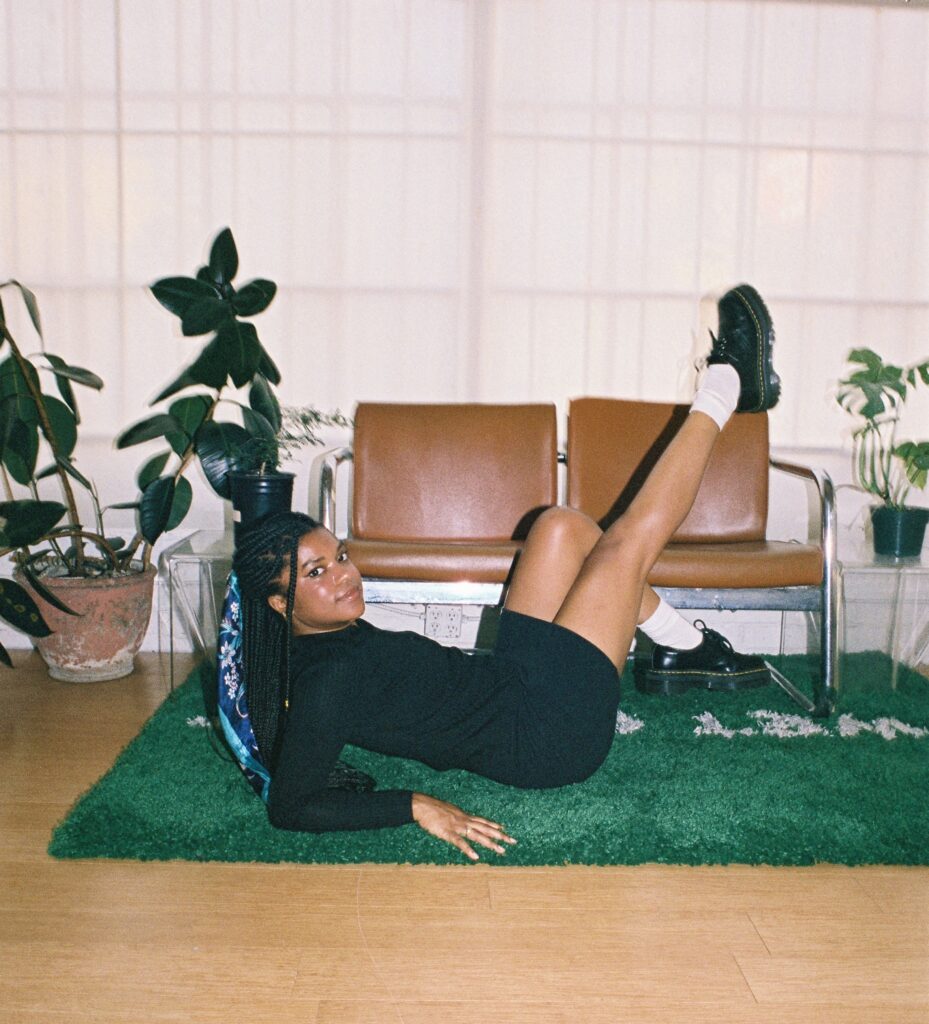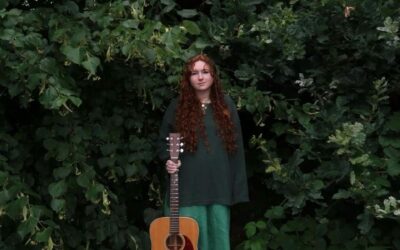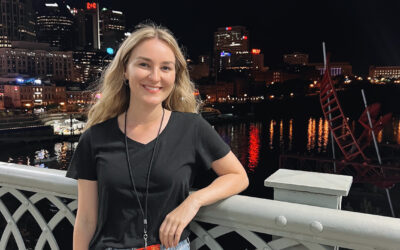They craft the lyrics, we scream at the top of our lungs, and piece together the melodies we hum to. But, behind these hits are usually the silent partners, songwriters and composers. In this feature we will explore the creativity behind the scenes and why the music industry must change for the better, for women.
What is your favourite song? Or maybe your favourite symphony? Can you recall the artist who performed that specific piece? Surely you will be able to answer all these questions but what if I asked you to name the people behind all these? Songwriters and composers are often overlooked within the music industry even after all their dedication and creativity to some big hits. Well, that’s at least according to songwriter Raye in her latest interview with Glamour, where the successful singer urges record companies to treat songwriters fairly.
A songwriter is a person who may write the lyrics to a song whilst a composer is a musician who creates the original music. Both songwriters and composers use music to tell stories and evoke emotions. And whilst some may argue that they tackle the hardest bits of a song people in the industry believe they are the least rewarded.
DANI OFFLINE
Dani Offline, a 24-year-old singer-songwriter and producer originally from Birmingham, Alabama, wears many hats. She has clearly shown her dedication throughout her creative journey crafting a unique blend of R&B and soul heavily influenced by jazz and alternative styles. The PhD student and writing instructor’s love of music began with jazz, and her sound reflects that rich heritage and her passion for Black American musical traditions.
Q: I can see you are extremely talented and have obtained a lot of skills, when did you start?
A:When I had crushes, at a young age, I would never express my feelings. So I would write my feelings down and never share anything. That was my first experience writing music and I guess I did it on and off. This was high school and when I got to college I thought I had been writing songs for a while let’s put it out there!
So I did a project, released it and thought this feels good. I have been writing music forever since. Shortly after writing that project, I enjoyed writing music and doing my own vocal production. I felt like I could do this, I just needed to learn how to do it.

Q: By creating your music surely you have to learn a lot of instruments?
A: Hmmm, let me think. Yes I mean I enjoy doing this so learning is fun for me! I consider my voice a musical instrument, firstly. I can also play the piano, guitar and clarinet too.
She also humorously says, “I always joke I can play the computer.”
Dani’s warm and bubbly personality constantly echoes throughout her answers as she tells me her biggest dreams in life.
A: I want to make music for as much and as long as possible. I know that sounds simple but it’s a huge blessing to be able to make music with my hands and be able to create, have the time, energy and even money to do it. At this point of my career, everything I do is like I must really really want it and I have to pursue it.
I would also love to have the access and opportunity to make music the way I want to, to be able to make music with a bunch of people and to be able to write and produce for other people in addition to other projects for myself.
Her brows furrow down as she begins on her challenges faced.
I feel like access is huge is a huge factor. Some producers learn production from other producers and I would say for women, especially women of colour, that is not the case. As music producers are usually men they can easily help each other.
It’s that feeling of not knowing many other female producers but you know at the same time that never stopped me just because I didn’t know any other producers that looked like me.
As a black woman, this way of life literally applies to everything, like if you want to be a rocket scientist, it’s hard to find rocket scientists who look like you and the real challenge is to not let that stop you. I’m thankful that it never did for me.
Also, another challenge is that I can be shy, I’ve always had bad stage fright as a kid.
Making music, especially performing your own kind of music. from your heart feels sooo vulnerable. It’s the most vulnerable and scary thing I have done in my life. In the same way, I’m glad I loved music more than I was afraid to make it.
Q: Do you believe songwriters receive enough credit?
A: No. Women who are musicians, a lot of the time, are assumed to be the front people. People think you just go into a booth and sing. The reality is there are many, not all, that are not just singing on stage.
They are writing and producing and I feel that some peoples’ work goes unnoticed, whilst their contribution is so important. I feel like sometimes the idea of a singular artist can be fiction. No one ever writes a song on their own as inspiration is everywhere. That’s how I feel.
Q: Overcoming these obstacles must’ve been difficult for you. What type of advice did you wish you had when you were first starting?
A: Put that sh*t out! she screams into the camera.
I know incredible musicians and they make beautiful music but they never post it! I was guilty of this for many years but I think it’s more I was afraid of being vulnerable and people liking it. People want to see your evolution. Even if it’s putting little demos out just share it without thinking about what other people think!
Behind the Notes: Isha Mistry
While songwriters weave impactful lyrics and catchy melodies, the melodic hand of composers has also been ignored constantly. Just as a captivating story needs a strong narrative structure, a song’s emotional resonance often leans on the composer’s ability to evoke emotion. Let’s turn our spotlight to Isha, a composer whose talent deserves equal recognition.
Despite her young age of 19, Isha Mistry mainly composes modern romantic music. From a Gujarati background and home in Wembley, London, Isha’s musical journey began at the tender age of 8 when she started taking piano lessons at her primary school. While her academic pursuits currently lie in bioengineering at university, with a future goal of project management, Isha’s passion for music composition continues to flourish.
Q: How did you begin composing?
Initially, I had a really bad teacher, he was so scary I would just memorise the notes rather than understand how to read them. Eventually, he left and my new teacher was amazing. She was the first teacher I had who was fully invested in my learning and development and had the patience to work with me. One year she decided to host a composition concert, where all the students had to compose a small piece, this was the first time I had ever composed something and I found that it was something I was really good at and thoroughly enjoyed.
Q: Do you believe the music industry has changed significantly since when you started?
I think the music industry today still produces some good pieces, but the overall quality of the music is declining. Less effort is required now to make music these days. For me, I always end up going back to things I used to listen to which are a lot older, as I think
those songs have more meaning and emotions behind the words in them.
Q: Do composers receive enough recognition?
Definitely not!!! Unless you are in the field of composition, the composers are barely
ever mentioned. Most of the backing tracks that artists use for their songs are actually composed by other people, and although they receive monetary compensation when their music is used in a song and it becomes successful, the composers themselves do not receive recognition for their work.
Q: How does composing make you feel?
In my life, music has the potential to make a bad day better, make me feel more confident, and even make me feel happy. When creating music, I genuinely feel proud of my work and although it may not be other people’s cup of tea, but it has proved its benefits to me. Most of my life consists of using my brain academically, but I believe using your brain for creativity is very beneficial for humans biologically.
Q: What’s one piece of advice you would give to women who are a minority in their field?
To women, I would say many people will look down on you for doing something different, or unique to yourself. People generally perceive women as less mentally strong and more manipulatable, but you are stronger than you think. If you feel strongly about something, be brave and stick to your opinions.
With many talented musicians all over the world, it’s quite easy to focus on the person performing the song. By bringing forward individuals like Dani Offline and Isha we can appreciate the dedication and unwavering passion from these two musical architects. As one becomes an established artist, the other continues to blend her academic pursuits with her own musical creativity. By showcasing these talented women, we not only acknowledge their contributions to the musical world but also illuminate the path for other women who have doubts. The next time you find your favourite song, take a moment to seek out the songwriters and composers- their stories deserve to be heard too.




